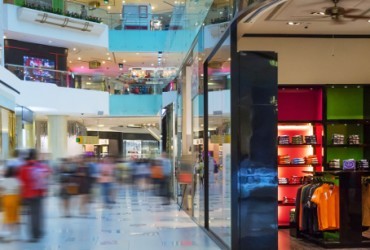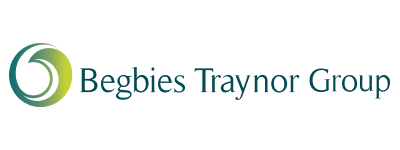
When the world restarts: The face of business in a post-lockdown world

Long after the physical health risks of Covid-19 have passed, the economic risks will still likely be felt. With the country currently under government-enforced lockdown measures, many businesses have temporarily closed their doors. Some were forced to close, while others were left with little choice but to follow suit as consumer demand plummeted.
Companies up and down the country have been mothballed and exist in a state of hibernation, awaiting further instruction from the government. With employees furloughed and their wages being subsidised, coupled with temporary restrictions on legal action for non-payment of debt, businesses are currently largely protected from the immediate effects of the pandemic.
However uncertain the current situation is, one thing is for sure – it is temporary. Lockdown will eventually be lifted, wage subsidies will come to end, and operating costs will need to be paid. It is this time immediately following the easing of lockdown restrictions which poses the real threat to businesses, testing not only their resilience but also their viability in a post-coronavirus world.
Managing the exit from lockdown
Among the raft of questions which will be pondered over the next few months, the chief priority for many is to ascertain exactly how the lockdown restrictions will be eased. The government have admitted that they do not have a clear exit strategy planned. With no real idea of what to expect when lockdown is lifted, nor any knowledge of when this could be, businesses are experiencing unprecedented levels of uncertainty, making planning for the future close to impossible.
While no sector is immune from business interruption at the present time, there are some companies which have more reasons to be anxious. Some industries will be more vulnerable than others and will experience a much more protracted return to normal, while it is almost inevitable that some businesses will simply not reopen at all, particularly those already experiencing financial or operational difficulties prior to the coronavirus pandemic.
A staged return to ‘normality’
If, as many predict, lockdown will be lifted in stages, then the UK’s £72bn hospitality industry is likely to be among one of the last to be allowed to resume trading – and even then, it may be contingent on adopting strict social distancing measures. Depending on whether there is a second wave of cases during the summer, it is not beyond reason to assume that this may not happen for some months yet. The late spring and summer months are crucial to many within the hospitality industry, being responsible for a huge percentage of its yearly income. The loss of this key trading period is something many bars, restaurants, and leisure venues will simply be unable to recover from.
Consumer sentiment will have a huge part to play in the recovery of many industries. Following weeks and possibly months of enforced lockdown, some individuals will be eager to mingle as soon as restrictions are eased; others, however, will need to be coaxed back into social situations. Traditionally quieter times for hospitality, retail, and travel providers may end up being busy with people keen to make the most of their new-found freedom and this pent-up demand could prove to be their saving grace.
Vaccine is key
Despite this, it is perhaps naïve to assume that the business tap will be switched on to the same level as it was before Covid-19
The key to business and economic recovery is in harnessing consumer spending, yet this will not be achieved simply by removing lockdown restrictions. It is likely that hesitancy will remain for some time, particularly among those who haven’t contracted the virus. Many will be reluctant to go back to doing what they did before, remaining reluctant to attend mass gatherings and participating in non-essential travel and social events.
Consumer confidence will not return to the same level until there is a widely available and effective form of treatment, or preferably a vaccine in place. Until this happens there will be an enduring caution to engage socially.
Social, health, and economic hesitancy
When it comes to re-engaging consumers post-lockdown, it is not just concerns regarding physical health which will need to be overcome. Some will be nursing a financial hangover, while many more will have adopted vastly altered social habits which may be hard to break.
Perhaps caught out by the sudden drop in income, as well as a realisation that they were able to cope without regular meals out, luxury holidays, or other non-essential indulgences, consumers are likely to re-evaluate what is important to them and where their money is best directed. Discretionary spending has been a huge driver in propelling the economy forward over the last couple of years; however, there is now the very real possibility that spending to the same level may not return for a number of years.
Consumers choosing to adopt a more cautious approach to discretionary spending could be the final nail in the coffin for the already beleaguered high street, while online retailers will also find themselves affected. Motor dealerships, particularly those who have previously been reliant on volume, could also be in for a tough time, while travel – which was one of the first sectors to be hit by Covid-19 challenges – looks set for more tough times ahead.
Cultural changes will be hard to break
Not only does the travel industry have to contend with plummeting consumer confidence, there will also be less demand for business-related travel as the way many of us now work has been changed forever as a result of this pandemic.
While lockdown has presented huge challenges to both businesses and individuals alike, when it comes to working from home, many have adapted to this change perhaps too well. From reduced commuting times, through to improved work-life balance, as well as cost-savings for both companies and workers, this enforced change in working habits could well be something which continues long after the pandemic is over. This is likely to have an effect on commercial landlords as demand for office space declines and a cultural shift towards working from home will also decrease footfall in town centres, compounding the misery for businesses reliant on passing trade.
Predicting the future
Arguably our best way of predicting what our post-coronavirus world may look like is to consider what has happened in Wuhan, the area where the virus originated. They are several months ahead of us in terms of recovery and, just as there were lessons to be learnt over how to halt the spread of the virus, there are also lessons we can learn when it comes to forecasting our economic recovery.
Cinemas opened to rows of empty seats, while shopping centres are also reporting significantly reduced footfall. Leading retailers have been forced to provide incentives to tempt people back into stores in an effect to buoy consumer morale and stimulate demand. If Wuhan’s recovery can show us anything, it is that patience will be required; just because the country is ready to reopen for business does not mean consumers will be ready to return to their old ways.
Businesses may be braced for a long road to recovery, but how many businesses will be able to survive while waiting for consumer confidence to return? Some may find their money runs out long before their patience.
Related News
